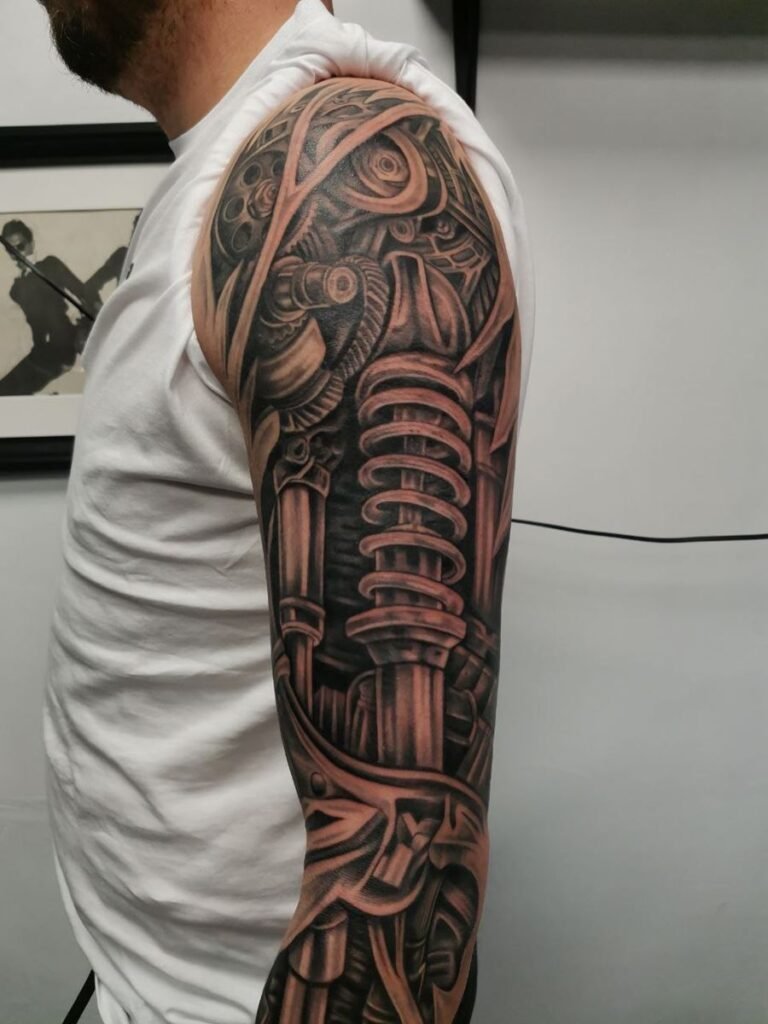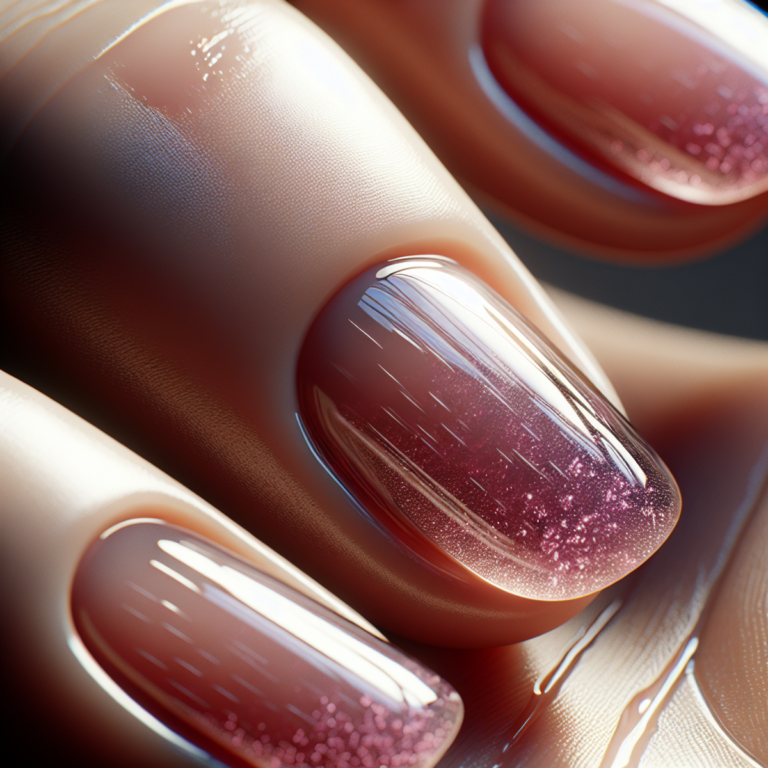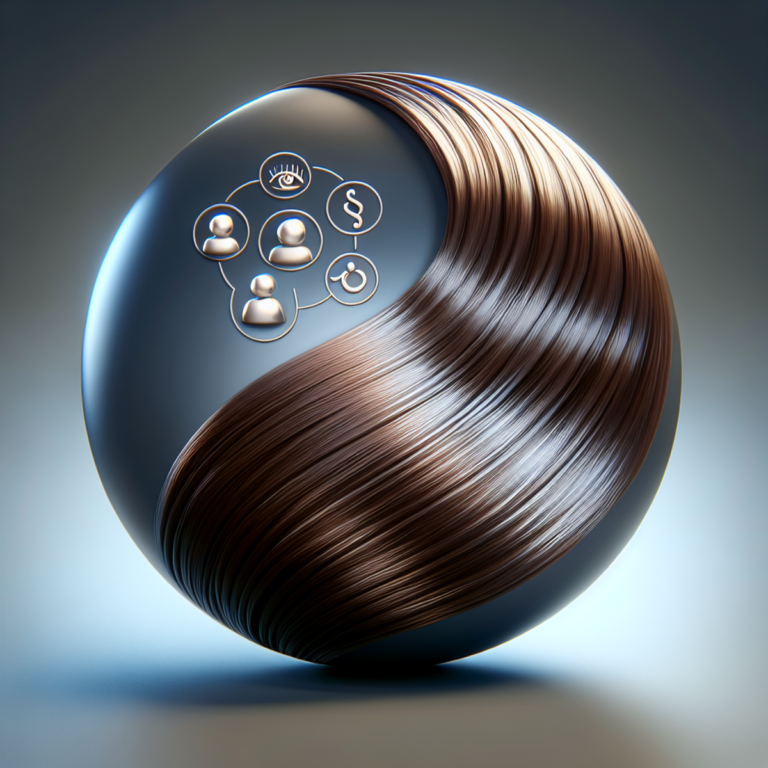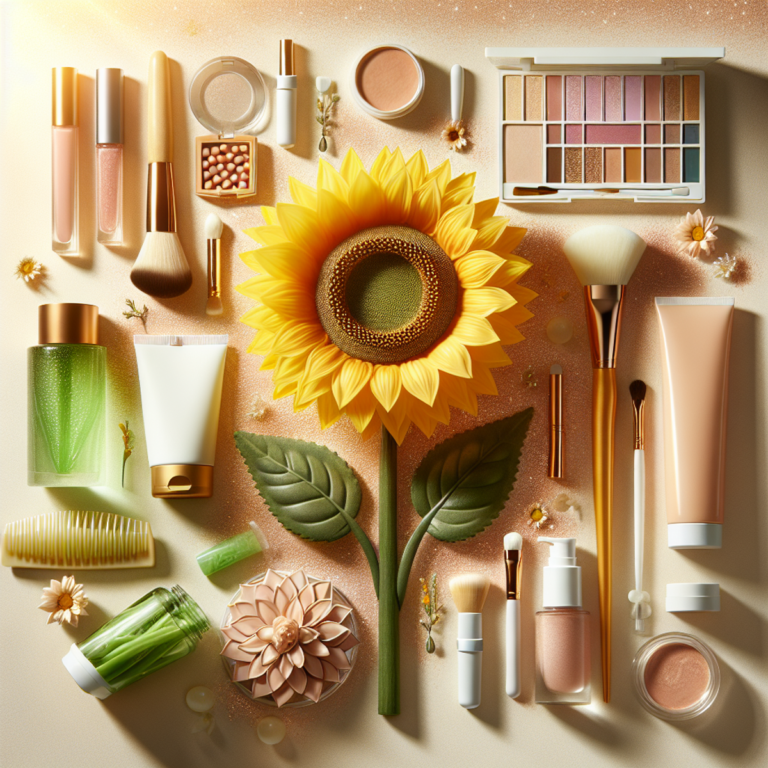How to Get Rid of Pimples Fast, According to Dermatologists
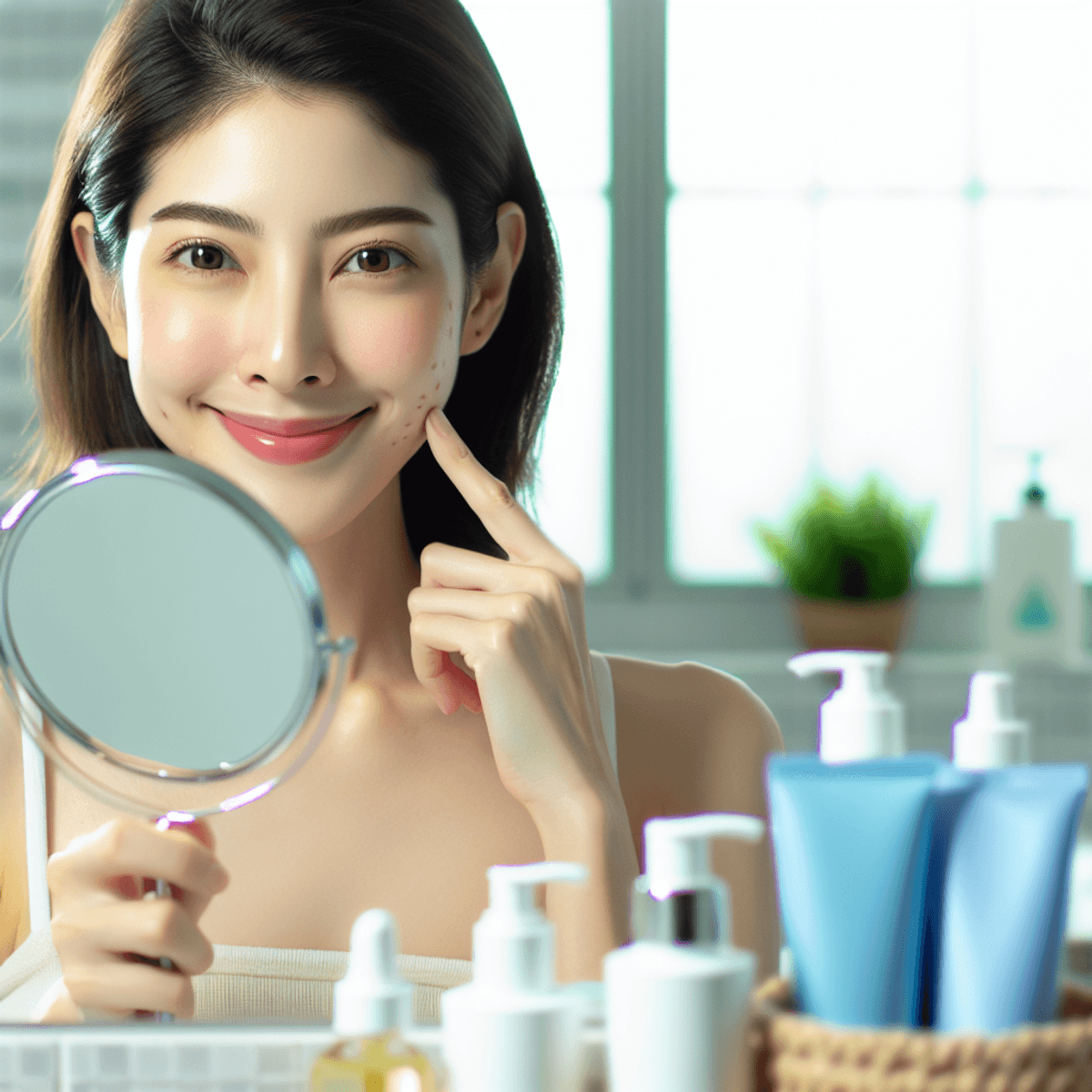
Introduction
Getting rid of pimples quickly is important for keeping your skin healthy and feeling confident. Pimples, or acne, can show up unexpectedly and usually at the worst times, making people look for quick ways to get rid of them. Whether you have a breakout before an important event or just want clear skin, knowing how to get rid of pimples fast can make a big difference.
In this article, we’ll share tips from dermatologists on how to fight acne quickly and prevent it from coming back. You’ll learn about treatments recommended by dermatologists that directly target pimples, including how to remove pimple marks and practical advice on reducing the appearance of zits such as learning how to get rid of a pimple in an hour.
We’ll also talk about ways to naturally remove pimple scars, giving you gentle but effective solutions for smoother skin. By understanding these strategies, you can take control of your skincare routine and improve your complexion with confidence.
Understanding Different Types of Pimples
Achieving skin health begins with understanding the types of pimples you may encounter. Each type requires a tailored approach for effective treatment and prevention.
Cystic Acne
Cystic pimples are among the most severe forms of acne. These deep, painful, and inflamed blemishes form under the skin’s surface due to clogged pores filled with bacteria, oil, and dead skin cells. Hormonal changes often trigger cystic acne, making it prevalent during puberty or hormonal fluctuations in adults. Managing these requires specific strategies; consulting a dermatologist is essential when figuring out how to effectively treat cystic pimples.
Blind Pimples
These are similar to cystic acne but without visible heads. Often lurking beneath the skin’s surface, blind pimples can be painful and challenging to treat. They result from blocked pores and excessive oil production. Their discreet nature makes them tricky to eliminate overnight, but gentle exfoliation and ice therapy can help reduce swelling and discomfort.
Pustules
Pustules are what most people think of as typical pimples—raised red bumps with a white or yellow center filled with pus. Bacteria and oil trapped inside pores cause pustules to form. Over-the-counter treatments like benzoyl peroxide or salicylic acid can be effective in reducing these common blemishes.
Understanding the causes behind different types of acne, such as hormonal imbalances, bacterial infections, or lifestyle factors, is vital in determining how to remove pimples naturally and permanently. Whether you’re dealing with forehead pimples, tackling unsightly bumps on your arms, learning how to remove dark spots caused by pimples, or seeking solutions for stubborn nose pimples, recognizing the type of pimple is the first step towards finding an appropriate solution. For comprehensive strategies on managing these issues, resources like this guide can provide valuable insights.
Quick Fixes for Pimples You Can Try Right Now
Dealing with pimples can be frustrating, but there are several quick fixes you can try to tackle them effectively. Dermatologists often recommend a combination of over-the-counter treatments and home remedies to address acne swiftly. Here, we’ll explore some tried-and-true methods that can give you fast relief.
1. Over-the-Counter Treatments That Work Fast
When battling pimples, over-the-counter (OTC) treatments are your first line of defense. These products are easily accessible and have been proven effective by dermatologists across the board.
- Benzoyl Peroxide: Known for its antibacterial properties, benzoyl peroxide works by killing the bacteria that cause acne. It also helps dry out excess oil and remove dead skin cells, reducing inflammation and preventing future breakouts. Available in various concentrations (usually between 2.5% to 10%), it’s important to start with a lower concentration to minimize irritation.
- Salicylic Acid: This beta hydroxy acid penetrates deep into pores, working to unclog them and exfoliate the skin. Salicylic acid is particularly effective for treating blackheads and whiteheads. It is commonly found in cleansers, toners, and spot treatments aimed at reducing blemishes on the face and body.
- Retinoids: Derived from vitamin A, retinoids accelerate skin cell turnover, which helps prevent clogged pores. They are highly effective in treating acne and reducing the appearance of fine lines and wrinkles. Retinol creams or gels can be found at local pharmacies, though it may take several weeks to see significant improvements.
- Tea Tree Oil: A natural alternative with antibacterial and anti-inflammatory properties, tea tree oil can help reduce mild acne breakouts. Before applying it directly to your skin, ensure you perform a patch test as it may cause irritation in some individuals.
These OTC treatments offer quick solutions for how to get rid of pimples on your face or how to make pimples go away almost overnight.
2. Home Remedies for Instant Pimple Relief
Sometimes, simple home remedies can provide immediate relief from pimples without the need for store-bought products.
- Aloe Vera: Renowned for its soothing properties, aloe vera can help reduce redness and inflammation associated with acne. Applying fresh aloe vera gel directly onto the affected areas may speed up healing.
- Honey: With its natural antibacterial qualities, honey is another effective home remedy for pimples. Applying a small amount directly onto blemishes can help cleanse pores and calm irritated skin.
Always remember the importance of patch-testing any new remedy before applying it all over your face or body to prevent potential allergic reactions or further irritation.
Exploring these quick fixes paves the way toward understanding when more advanced interventions like ice therapy or cortisone injections might be necessary—topics discussed in upcoming sections of this guide on how to get rid of pimples fast according to dermatologists.
2. Home Remedies for Instant Pimple Relief
Tackling pimples with natural remedies offers a gentle alternative to over-the-counter treatments. Here are some effective options using ingredients you might already have at home:
Aloe Vera
Aloe vera is known for its anti-inflammatory and soothing properties. Applying pure aloe vera gel to the affected area can help reduce redness and swelling. It also promotes healing, making it an excellent choice for those seeking quick fixes for pimples.
Honey
Honey, especially raw or manuka honey, has antibacterial properties that can assist in reducing pimple-causing bacteria. A thin layer applied to the pimple can act as a spot treatment, helping to clear up breakouts and soothe the skin.
Tea Tree Oil
Though mentioned previously under topical treatments, tea tree oil deserves another mention in the realm of home remedies. Its natural antibacterial qualities make it effective in combating acne. Always remember to dilute it with a carrier oil and perform a patch test before use to avoid irritation.
Green Tea
Rich in antioxidants, green tea can be brewed and cooled before being applied as a toner or compress on the skin. Its anti-inflammatory effects might assist in calming inflamed pimples.
Apple Cider Vinegar
This vinegar is known for its astringent properties and can help balance the skin’s pH levels while drying out excess oil. Dilute it with water before applying to prevent irritation.
When trying these home remedies, it’s important to patch-test each substance on a small part of your skin first. This step helps identify any potential allergic reactions or sensitivities, ensuring you’re not introducing further irritation while attempting to treat a breakout.
Each of these natural methods provides unique benefits for how to get rid of pimples quickly. While they may not offer overnight miracles, consistent application combined with proper skincare can significantly enhance your efforts in managing breakouts effectively.
3. When to Use Ice Therapy or Cortisone Injections for Rapid Results
For those moments when you need quick fixes for pimples, ice therapy and cortisone injections stand out as effective solutions.
Ice Therapy
Ice is a simple yet powerful tool in your arsenal for how to get rid of pimples fast. By applying ice directly to inflated pimples, you can:
- Reduce Swelling: The cold temperature constricts blood vessels, helping to decrease the size and redness of the pimple.
- Soothe Pain: The numbing effect from the ice can provide relief from discomfort and irritation commonly associated with inflamed breakouts.
To use ice therapy effectively, wrap a few cubes in a clean cloth and apply it gently on the affected area for about 10 minutes. Repeat this process several times a day for optimal results.
Cortisone Injections
When dealing with stubborn cystic acne or severe breakouts that require immediate attention, cortisone injections administered by a dermatologist could be the answer. This method is particularly useful if you need rapid relief before an important event or occasion.
- Immediate Reduction: Cortisone injections deliver anti-inflammatory medication directly into the blemish, significantly reducing swelling and size within 24 to 48 hours.
While cortisone injections are effective, they should be considered only when other treatments haven’t worked due to potential side effects such as skin thinning or discoloration at the injection site.
Both of these methods offer targeted approaches on how to get rid of pimples overnight. Whether you’re tackling pimples on your face or back, understanding when and how to use these techniques can help you manage sudden breakouts efficiently.
Long-term Strategies for Maintaining Clear Skin
Maintaining clear skin often begins with a proper skincare routine. Consistency is key, and establishing a regimen that cleanses, treats, and moisturizes your skin can significantly reduce the occurrence of breakouts.
1. Establish a Proper Skincare Routine
Using a gentle cleanser twice daily helps remove dirt and oil without stripping away essential moisture. Incorporating products with active ingredients like salicylic acid or retinoids can target specific concerns such as blackheads or under-the-skin pimples.
2. Choose the Right Makeup Products
Selecting the right makeup products is equally important in preventing clogged pores. Opt for non-comedogenic products, which are specifically formulated to not block pores. These include foundations, concealers, and powders labeled as “oil-free” or “won’t clog pores.” When choosing makeup, it’s crucial to consider your skin type and any underlying concerns like sensitivity or acne-prone tendencies.
3. Address Specific Issues
For those dealing with persistent issues like pimples on buttocks, addressing lifestyle factors can be beneficial. Wearing breathable fabrics and maintaining good hygiene are simple yet effective measures. Similarly, if you’re trying to figure out how to get rid of vaginal pimples or bumps on arms, focusing on gentle exfoliation and hydration is advisable.
4. Treat Existing Scars
Treating existing scars from acne can involve specialized products like pimple scar removal creams. These often contain ingredients such as vitamin C or niacinamide that can lighten scars over time.
5. Make Lifestyle Adjustments
Preventing breakouts also involves lifestyle adjustments. Learning how to stop breakouts might include dietary changes, stress management techniques, and ensuring regular exercise to boost overall skin health.
By adopting these long-term strategies, achieving clear skin becomes a more attainable goal.
How Your Lifestyle Choices Impact Acne Breakouts and What You Can Do About It
Lifestyle choices play a significant role in the health of your skin, affecting everything from how to remove blackheads that won’t come out to treating tiny bumps on your face. Understanding how diet and stress impact acne can help you make informed decisions to improve your skin.
Role of Diet in Skin Health
Hydration
Drinking plenty of water is essential for maintaining healthy skin. Hydration helps flush out toxins and supports your skin’s natural barrier function, which can prevent pimples from forming.
Nutrition
A balanced diet rich in vitamins and minerals benefits your skin. Foods high in antioxidants, such as fruits and vegetables, combat inflammation and reduce acne flare-ups. Omega-3 fatty acids found in fish or flaxseeds can also help manage breakouts.
Avoiding Trigger Foods
Some individuals find that dairy or high glycemic foods (like sugary snacks) exacerbate their acne. Identifying and avoiding these triggers can be a proactive way to stop getting pimples.
Managing Stress Levels
Stress is known to increase hormone levels, which may lead to hormonal acne. In fact, stress has been linked to an increase in acne severity. Simple strategies for stress management include:
- Regular Exercise: Physical activity not only reduces stress but also increases blood circulation, promoting healthy skin renewal.
- Mindfulness Practices: Techniques like meditation or yoga can help keep stress hormones in check, which might prevent deep pimples from surfacing.
By focusing on these lifestyle changes, you can effectively tackle various skin issues including how to get rid of spots on the bum overnight, or addressing specific concerns like how to get rid of acne according to a dermatologist. Moreover, if you’re struggling with the aftermath of breakouts, such as how to get rid of acne scars according to the experts, there are resources available that provide valuable insights into effective treatments for acne scars. Incorporating these habits into your routine ensures a holistic approach to managing acne and improving overall skin health.
Professional Treatments Available If Nothing Else Works For You
When home remedies and over-the-counter solutions fall short, seeking professional help for acne can be the answer to persistent skin issues. Dermatologists and licensed estheticians offer a range of treatments designed to tackle stubborn acne effectively.
Customized Facials
Facials tailored to your skin type and condition can significantly improve skin clarity. Estheticians often use techniques like:
- Deep Cleansing: Thorough removal of impurities and buildup.
- Exfoliation: Gentle exfoliants to remove dead skin cells.
- Extraction: Safe removal of blackheads and whiteheads.
These methods help in removing tiny bumps on the forehead and clearing pimples by unclogging pores and promoting healthy skin turnover.
Chemical Peels
Chemical peels utilize acids such as glycolic or salicylic acid to exfoliate the top layer of skin, revealing smoother, less blemished skin beneath. This treatment can be particularly effective in reducing the appearance of acne scars and spots on the face quickly.
Laser and Light Therapies
Laser therapies may not be an immediate solution but are effective long-term. Blue light therapy targets acne-causing bacteria, while laser treatments reduce inflammation and promote healing.
Cortisone Injections
Cortisone injections offer rapid relief for severe breakouts by directly reducing inflammation in cystic acne. This method is especially useful for getting rid of chin pimples overnight.
Microneedling
Microneedling involves creating tiny punctures in the skin using fine needles, stimulating collagen production. This process helps in naturally getting rid of teenage pimples at home by promoting clearer, more resilient skin.
Exploring these professional treatments provides not just solutions but also insights into maintaining long-term clear skin health.
Common Mistakes People Make When Dealing With Pimples And How To Avoid Them
Navigating the world of acne treatment can be tricky, with common missteps often making the issue worse. One prevalent mistake is popping pimples, a practice that many believe offers quick relief. However, dermatologists warn that this can actually worsen inflammation and lead to scarring. The act of squeezing can push bacteria deeper into your skin, potentially causing further breakouts.
Avoiding Harmful Home Remedies
Many people resort to home remedies in an attempt to treat their acne. For instance, while some believe that toothpaste serves as a handy spot treatment due to its drying properties, it actually contains ingredients that can irritate and damage your skin.
Similarly, vinegar, often praised for its antibacterial qualities, is highly acidic and can cause burns or make irritation worse when applied directly to your skin.
Instead of these risky methods, consider safer alternatives like benzoyl peroxide or salicylic acid, which are specifically formulated to target acne without harming your skin.
Understanding Prevention
Understanding how to stop pimples coming on face involves more than just treating existing spots. Consistently using non-comedogenic makeup and skincare products helps prevent clogged pores. Regularly cleansing your skin with gentle products suited for acne-prone types is essential in maintaining clear skin.
For those wondering how to get rid of under the skin pimples or even how to get rid of pimples on forehead overnight, adopting a comprehensive skincare routine that includes exfoliating with salicylic acid and using retinoids may offer effective solutions.
By avoiding these common mistakes and opting for dermatologist-approved treatments, you set yourself on a path toward clearer skin while minimizing potential damage.
Conclusion: Start Your Skin Health Journey Now!
You’ve learned various dermatologist-recommended strategies on how to get rid of pimples fast. By incorporating these methods into your routine, you can effectively manage and reduce the appearance of breakouts.
- Try Out Proven Treatments: Use over-the-counter solutions like benzoyl peroxide and salicylic acid to address acne swiftly. Consider home remedies such as tea tree oil for mild breakouts.
- Implement Instant Solutions: Learn how to shrink a pimple in minutes or how to reduce pimple redness in 5 minutes by applying ice therapy or consulting a dermatologist for cortisone injections.
- Prioritize Consistent Skincare: A well-maintained skincare regime is key to preventing pimples on the face forever. Regular cleansing and choosing non-comedogenic products will help maintain clear skin.
- Adopt Smart Lifestyle Choices: Understand how diet and stress levels impact acne, helping you prevent blackheads, whiteheads, and other blemishes permanently.
This journey towards healthier skin empowers you to take control with informed decisions. Whether you’re looking for blind pimple treatment or seeking ways to stop pimples coming on the face permanently, remember that consistency and patience are essential. Embrace these insights, try out new methods, and watch your skin transform!
FAQs (Frequently Asked Questions)
What are the common types of pimples?
Common types of pimples include cystic acne, blind pimples, and pustules. They can form due to various factors such as hormonal changes, bacteria, and lifestyle choices.
How can I get rid of a pimple quickly?
To get rid of a pimple quickly, consider using over-the-counter treatments containing benzoyl peroxide or salicylic acid. Additionally, home remedies like applying ice or natural ingredients like aloe vera and honey may help reduce inflammation.
Are there effective home remedies for pimples?
Yes, effective home remedies for pimples include using natural ingredients like aloe vera, honey, and tea tree oil. These can help soothe the skin and reduce redness. However, it’s important to patch-test any new remedy before applying it to your face.
When should I consider cortisone injections for pimples?
Cortisone injections may be considered for rapid results in cases of severe inflammation or cystic acne that doesn’t respond to topical treatments. It is advisable to consult a dermatologist for this option.
How do I remove pimple marks or scars?
To remove pimple marks or scars, you can use treatments such as retinoids or seek professional options like chemical peels and laser therapy. Natural remedies like lemon juice or vitamin E oil may also help fade marks over time.
What should I do if I have a sudden breakout?
If you experience a sudden breakout, start by cleansing your face gently with a mild cleanser. Avoid picking at the pimples and apply topical treatments such as benzoyl peroxide. If breakouts persist, consult a dermatologist for personalized advice.


